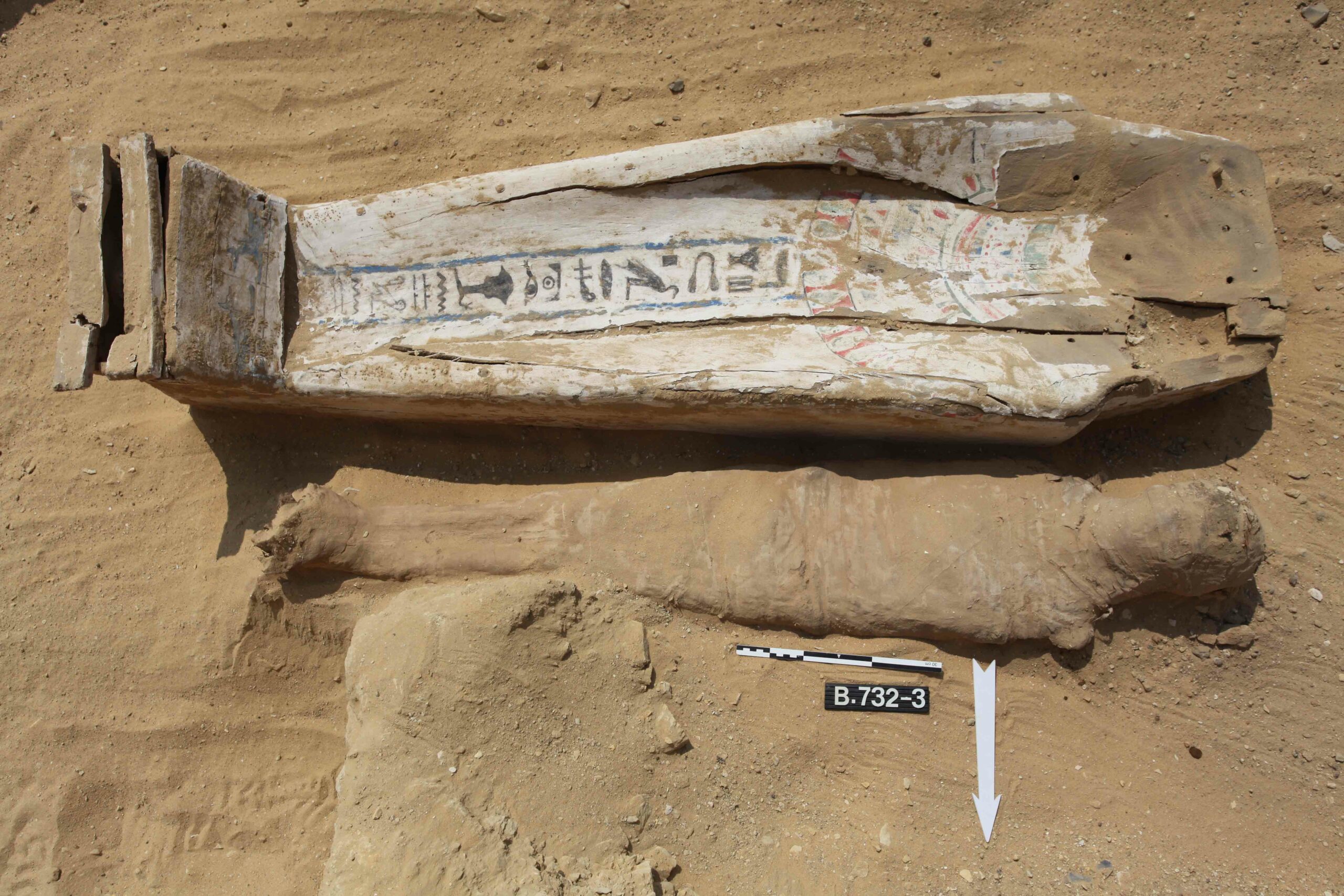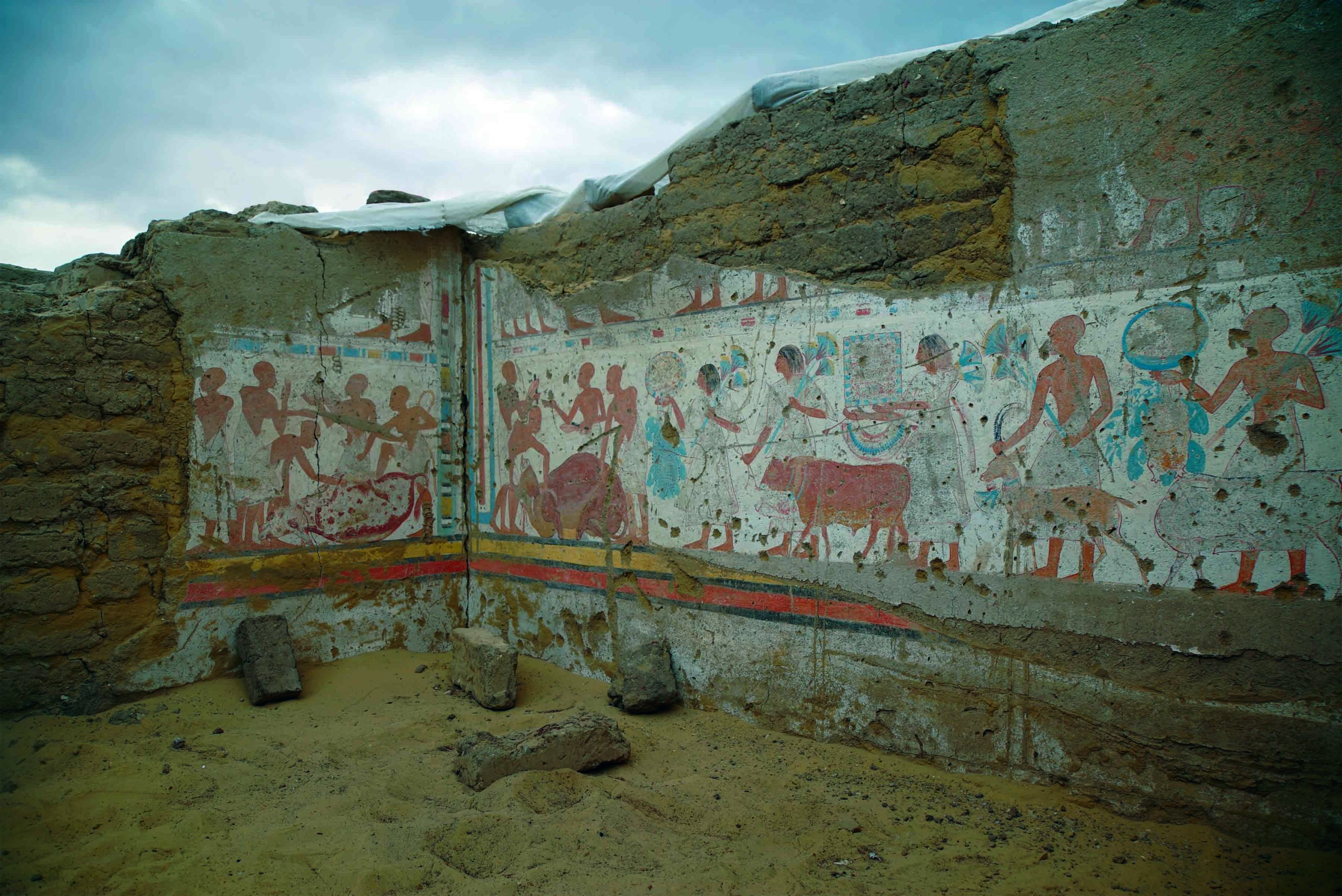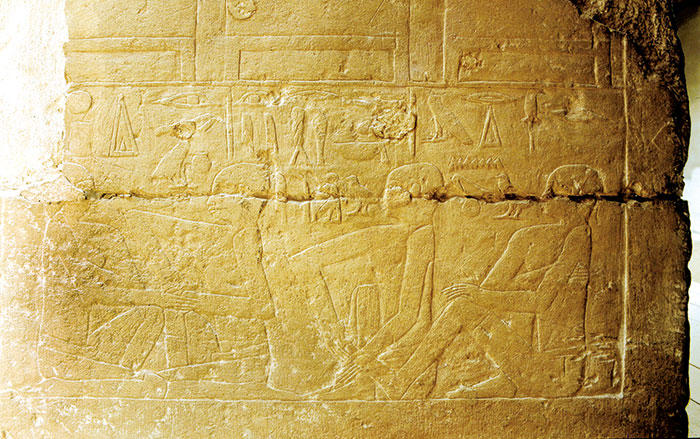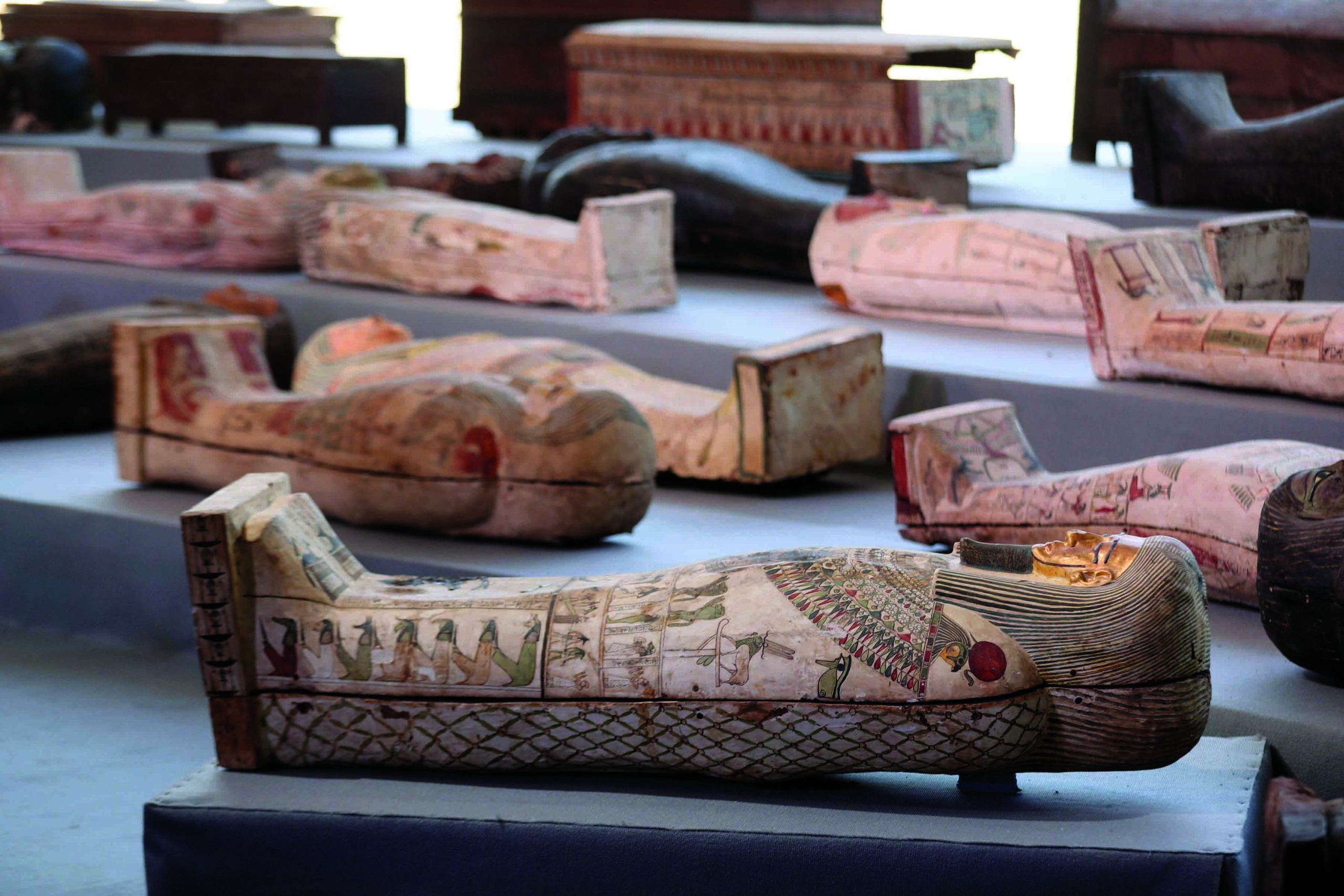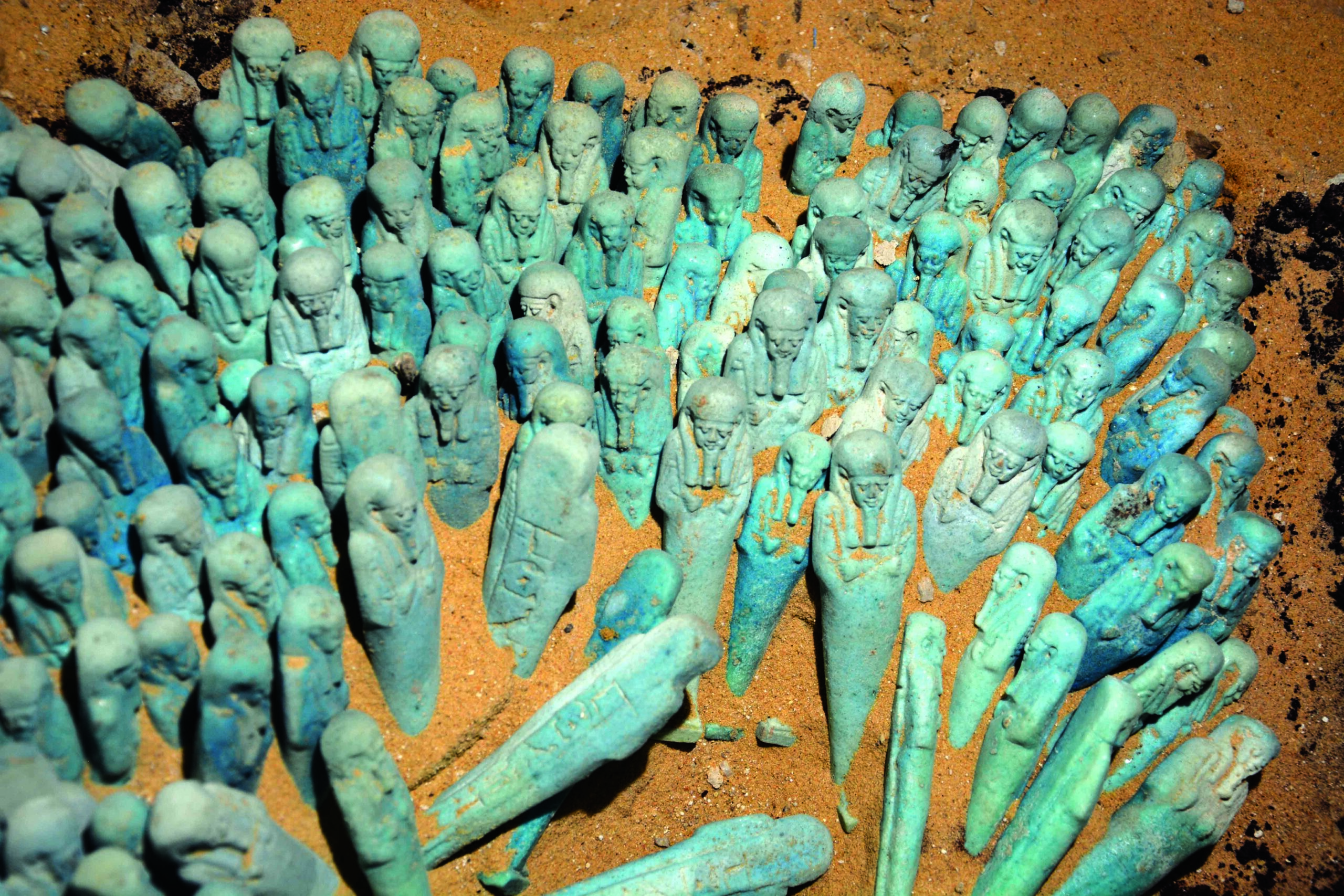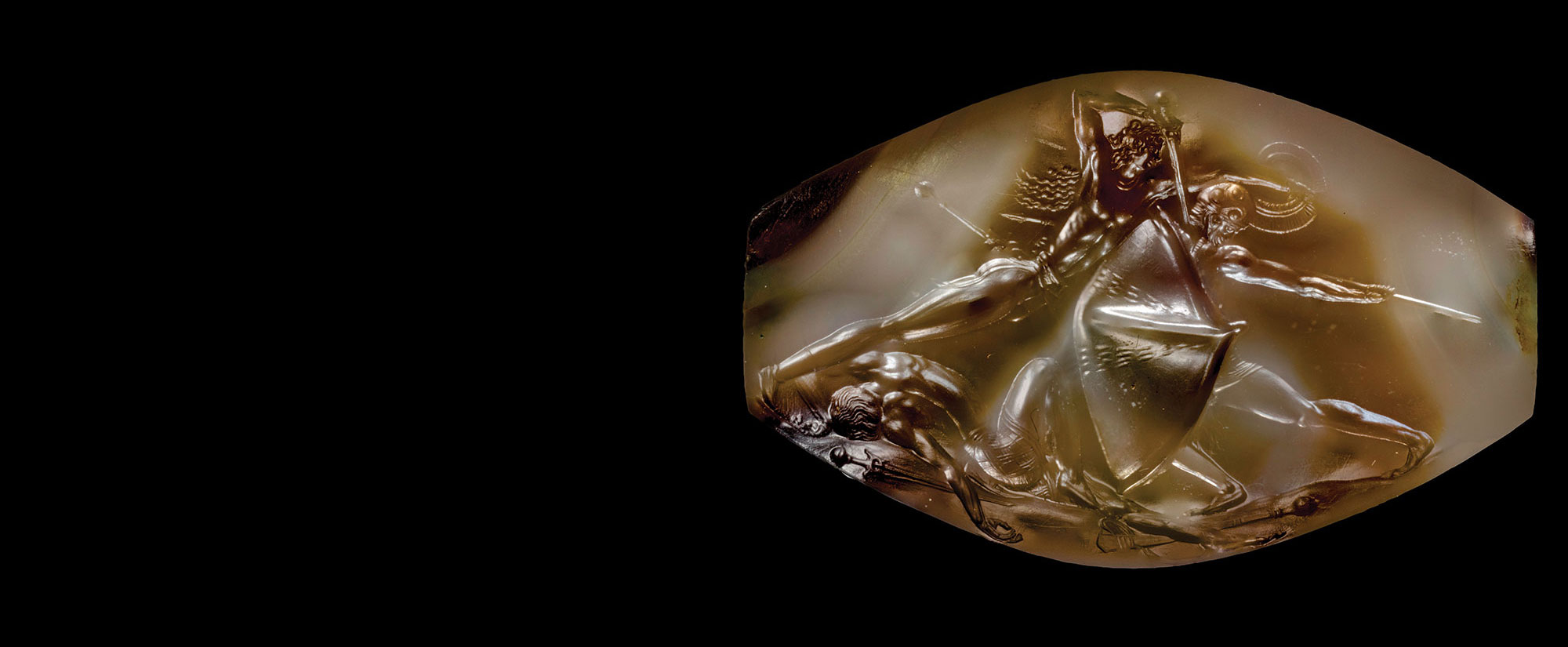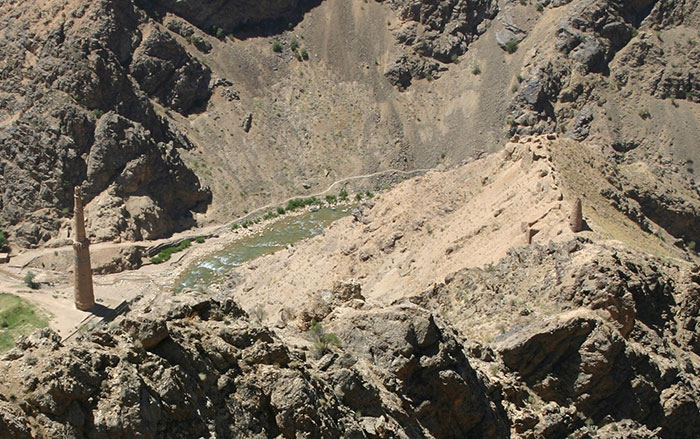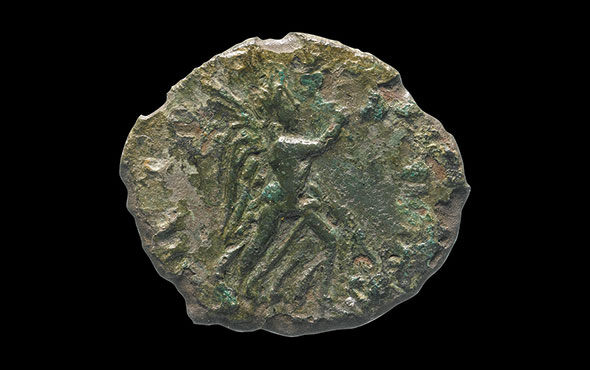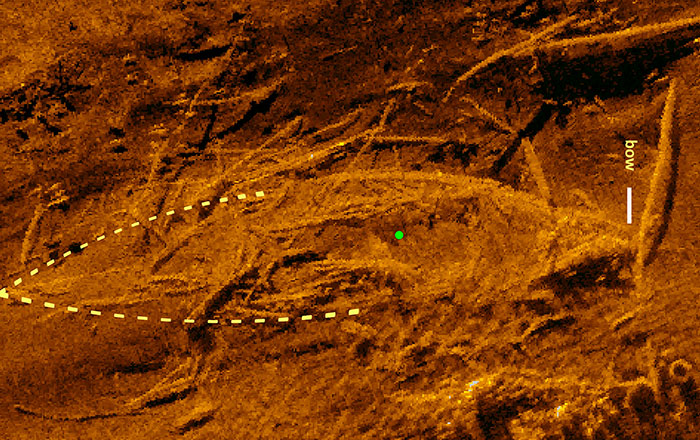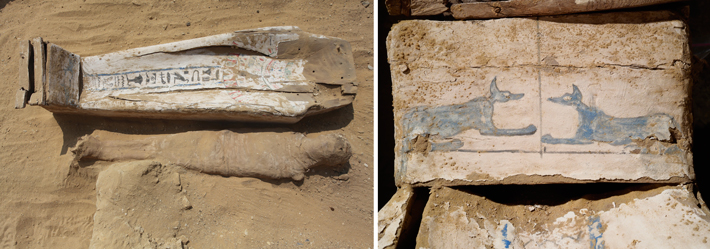
Thirty-six mummies dating to between 600 B.C. and A.D. 100 have been discovered by a team of Polish archaeologists in Saqqara, the ancient cemetery of the city of Memphis in Egypt. These mummies received only the simplest embalming, explains excavation director Kamil Kuraszkiewicz, an Egyptologist at the University of Warsaw. “There are no inscriptions or personal items that would hint at these people’s names or professions,” he says, “but analysis of skeletal remains indicates that they mostly performed hard labor.” Of the very few coffins found with the mummies, one was decorated with a nonsensical hieroglyphic inscription and rough depictions of jackals meant to represent Anubis, the god of death. The designs seem to imitate coffins found in high-status burials.


